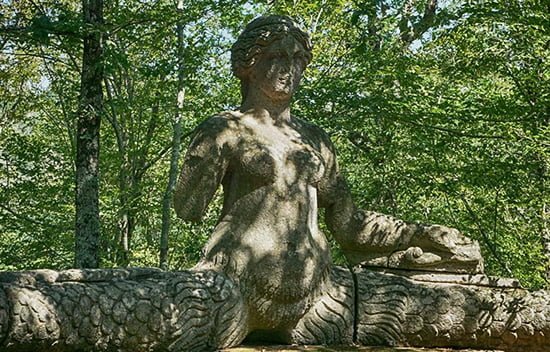Contents
ToggleIn short
Lucaria was a grove festival (Latin lucus) held on July 19 and 21. The original meaning of the ritual was obscure in the time of Varro (mid-1st century BC), who omitted it from his list of festivals.

Lucaria, the festival of the grove
The deity for which it was celebrated is unknown; if a clearing ritual recorded by Cato relates to this festival, the invocation was deliberately anonymous (Si deus, si dea). The dates of the Lucaria are recorded in the Fasti Amiterni, a calendar dating from the reign of Tiberius found at Amiternum (today S. Vittorino) in Sabine territory.
The Augustan grammarian Verrius Flaccus linked Lucaria to the disastrous defeat of the Romans by the Gallic during the Battle of Allia, which took place on July 18. The festival, he says, was celebrated in the great grove between the Via Salaria and the Tiber, where the Romans who survived the battle had hidden. The Via Salaria crossed the battlefield about 10 miles north of Rome.
The lucus would therefore have been located on Pincian Hill, which was later cultivated as gardens and recreational parks by Lucullus, Pompey, Sallust and others. This explanatory story has been compared to that of the Poplifugia, which also involved the Gallic sack of Rome. The story is perhaps more etiological than historical. The Lucaria suggests that the veneration of groves was a practice that the early Romans had in common with the Gauls.
Like other “fixed festivals” (dies nefasti publici) of the Roman calendar, Lucaria took place on odd days, with an intermediate “non-festive” day. A mention of Macrobius seems to imply that the festival began at night and continued into the next day.
Social networks
Picture
